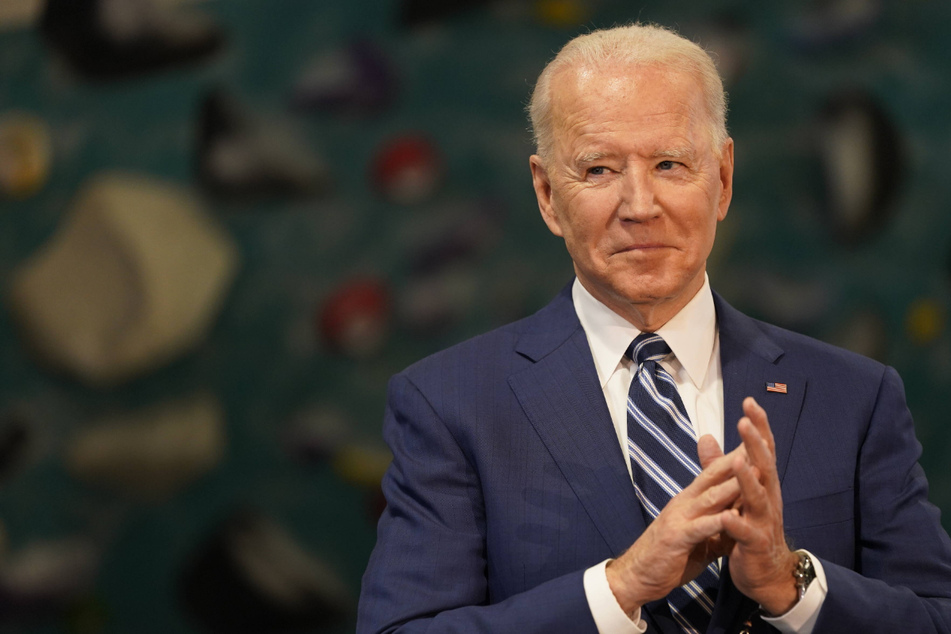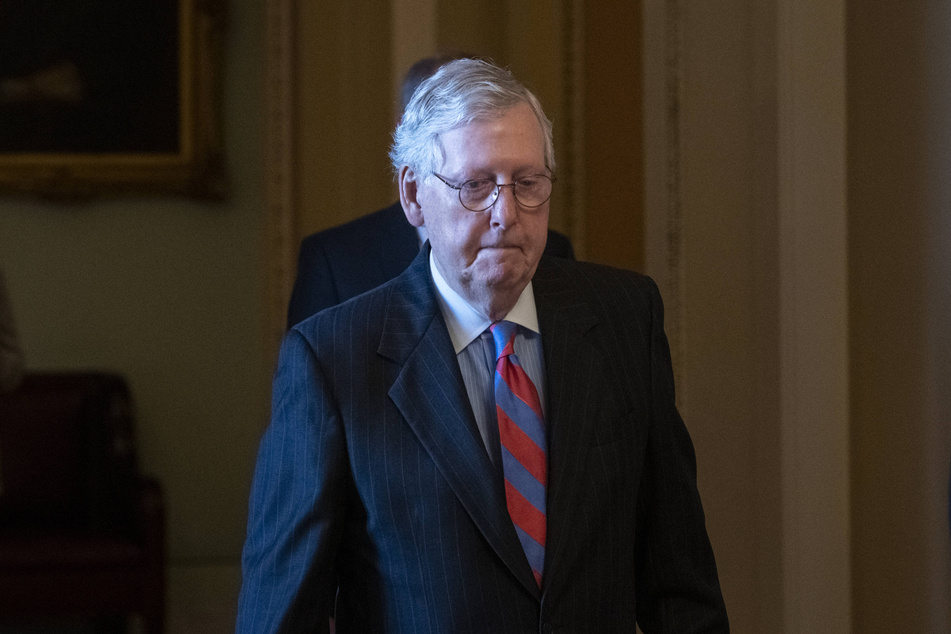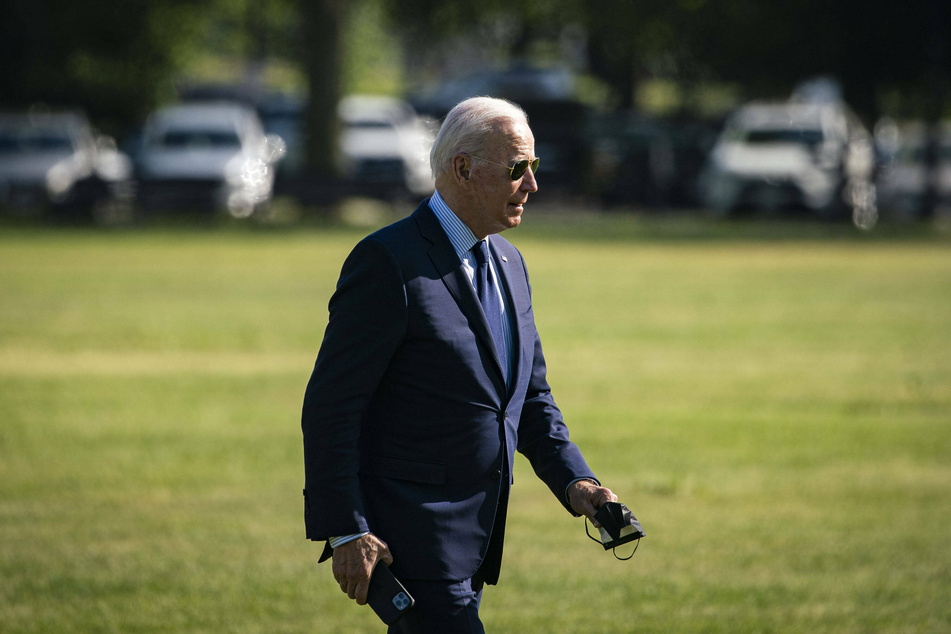Biden proposes budget plan with annual federal spending to top $6 trillion
Washington DC — President Joe Biden on Friday proposed a $6 trillion budget for the coming fiscal year, reflecting both ambitious goals for reinvigorating the economy through government action and a head-on challenge to his Republican opponents in Congress.

Biden is seeking billions of additional dollars for new infrastructure, aid to education, help for middle-class families, new environmental programs, and a host of other domestic initiatives for fiscal year 2022 – which begins October 1.
He has promised to ramp up economic growth and make the United States more competitive globally, boost the long-stagnant incomes of most American workers, and combat climate change.
And by proposing the largest annual federal budget in constant dollars since World War II, including widely popular domestic programs, he is laying down a political gauntlet to Republicans who are betting they can obstruct his initiatives and break Democrats’ shaky majorities in Congress in next year’s midterm election.
Shalanda Young, Biden’s acting budget director, said the initiatives, if enacted, would be "transformational."
"This budget will grow the economy, create jobs and do so responsibly by requiring the wealthiest Americans and big corporations to pay their fair share," she said on Friday.
Biden's budget proposal in detail

Any president’s budget request to Congress is primarily a political document, a fiscal blueprint spelling out the administration’s priorities.
The president’s budget includes a $14 billion increase to tackle the climate crisis, $10.7 billion more to combat the opioid epidemic, an additional $20 billion for schools in high-poverty areas, and an $8.7 billion increase for the Centers for Disease Control and Prevention to boost its ability to detect and respond to global health crises like the coronavirus pandemic.
Biden is not, however, requesting funding for expanding health care coverage beyond the tax credits and enhanced subsidies that were part of the temporary $1.9 trillion pandemic relief law he signed in March.
Instead, he is calling on Congress to pass legislation this year to expand in-home care and to lower the cost of prescription drugs – long a priority for Democrats – and to reduce the age of Medicare eligibility to 60.
Biden is the first president in more than two decades not to include the Hyde Amendment, which prohibits federal funding for abortions, in his budget. The move made good on a campaign promise, but with Democrats’ narrow majorities in Congress, actually eliminating the law is unlikely.
Republicans call the proposal "dead on arrival"

Under Biden’s budget proposal, the federal deficit for the next fiscal year would hit $1.8 trillion, considerably more than the nonpartisan Congressional Budget Office projected in February based on current spending and taxes.
Biden’s plan to increase taxes on corporations and the very wealthy would offset the cost of infrastructure and social programs over 15 years, the administration has projected.
"The president’s budget improves the long-term fiscal outlook because his policies are paid for over the long run," Young said.
Republicans, however, are concerned that Biden's plan will deepen the nation's already large debt, and assumes continued low inflation and interest rates.
They are also calling the higher taxes on corporations and the wealthiest Americans a "red line" in any negotiations.
While they’re assailing Biden for proposing to raise taxes, most Americans would actually see tax cuts.
Republicans also are criticizing Biden for his budget’s projection of yearly deficits exceeding $1 trillion, yet they said little when red ink hit that level under Trump.
"President Biden’s proposal would drown American families in debt, deficits and inflation," Senate Minority Leader Mitch McConnell, said in a statement. Senator Lindsey Graham of South Carolina, the ranking Republican on the Senate Budget Committee, called the proposal "dead on arrival."
Of the $6 trillion in spending Biden is proposing for next year, more than half is for Social Security, Medicare, Medicaid and other mandatory federal obligations that are set in law. Much of the rest maintains funding for existing military and domestic programs.
Biden: "This is our moment to rebuild"

Biden, speaking at Cleveland Community College Thursday in advance of sending his budget request to Congress, said, "This is our moment to rebuild an economy from the bottom up and the middle out."
He argued that investments in infrastructure, workers and families will make America’s economy fairer and help the country keep pace with global rivals, China in particular.
And he continued to push for his proposals to raise taxes on corporations and the richest individuals to pay for the investments and tax breaks for low and middle-income households.
While polls show the popularity of many of Biden's proposals, pressing his plans without bipartisan buy-in would be a political gamble given the highly polarized electorate.
Economist Mark Zandi of Moody’s Analytics said that he expects that Biden will eventually come away with a $2.5-trillion package of new spending on infrastructure and social programs, plus tax credits, over 10 years — not $4.5 trillion.
And instead of $3.5 trillion in higher taxes over the decade, Zandi expects about $1.5 trillion will end up as law by year’s end.
"This budget is aspirational. It’s laying out a blueprint for the administration’s objectives, goals, and how to get there," Zandi said.
"So they don’t expect to land on Mars, but they are going to propose and go to the moon," he added.
Cover photo: IMAGO / MediaPunch

